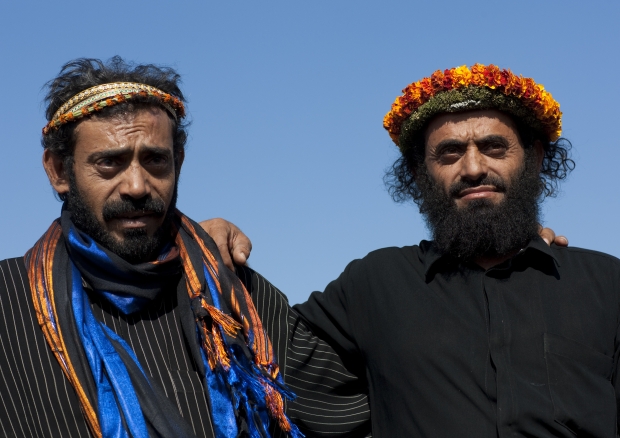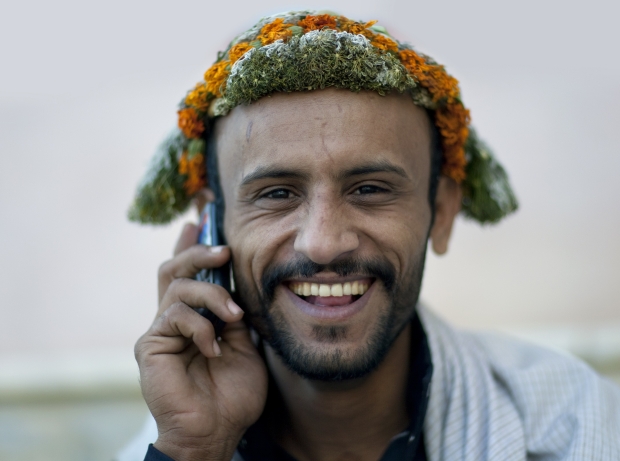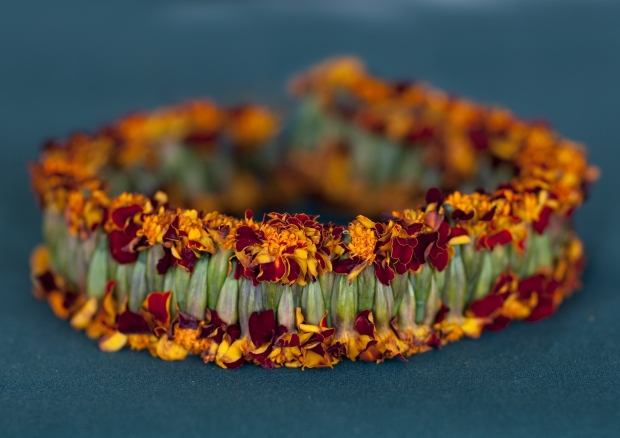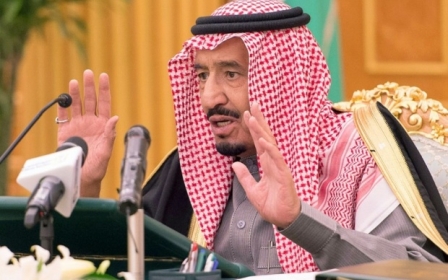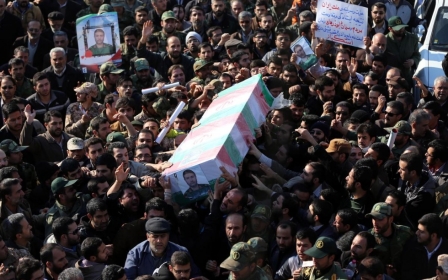The flower men of Saudi Arabia
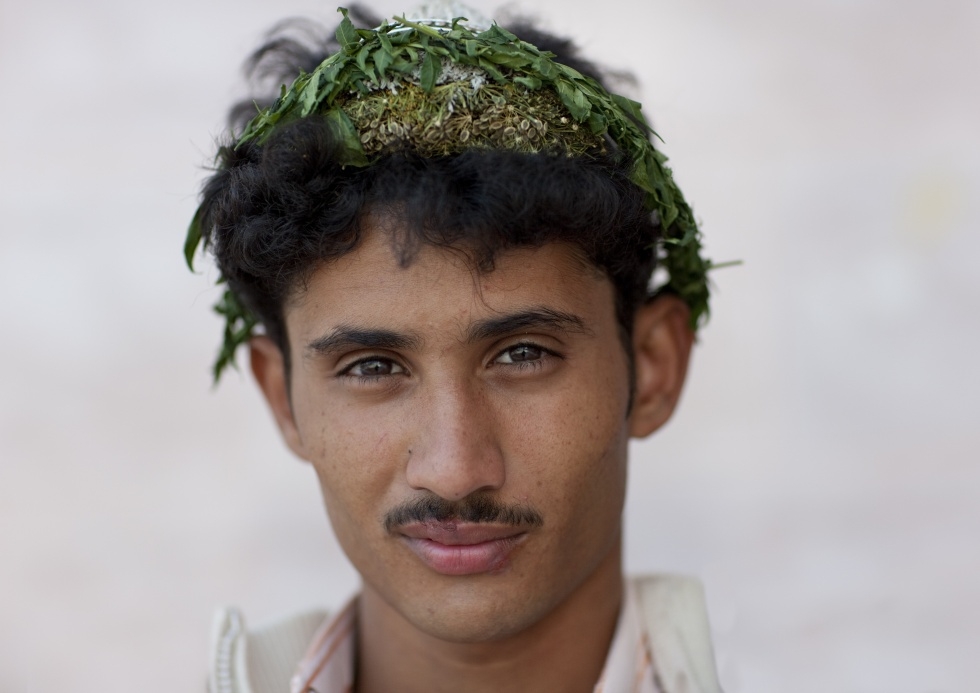
Habala is a small mountain village in Saudi Arabia’s Asir province near the Yemeni border. For centuries, a tribal community known as “flower men”, because of their custom of wearing wreaths dried herbs and flowers in their hair, grew crops and raised cattle in their clifftop settlement.
Accessible only by a rope-ladder the “hanging village” was transformed in 1992 when the Saudi government built a cable-car and a road allowing tourists to access Habala's mud-brick houses and sweeping views. After violent clashes with Saudi police, the flower men were forcibly relocated to a modern village built for them in the valley below. Today, some of the original inhabitants are allowed back to the village, but only to perform their traditional dances for holiday makers.
In late 2011, Eric Lafforgue, a French photojournalist who was spent years documenting marginalised communities around the world, travelled to Asir province with a police escort.
"They wear the flowers for many reasons, beauty is important," said Lafforgue. "It’s also a way to refresh the mind and to smell good. And it’s good for a headache, some even put flowers and herbs in their nose when they have a cold. But the main thing is to look good."
New MEE newsletter: Jerusalem Dispatch
Sign up to get the latest insights and analysis on Israel-Palestine, alongside Turkey Unpacked and other MEE newsletters
Middle East Eye delivers independent and unrivalled coverage and analysis of the Middle East, North Africa and beyond. To learn more about republishing this content and the associated fees, please fill out this form. More about MEE can be found here.


